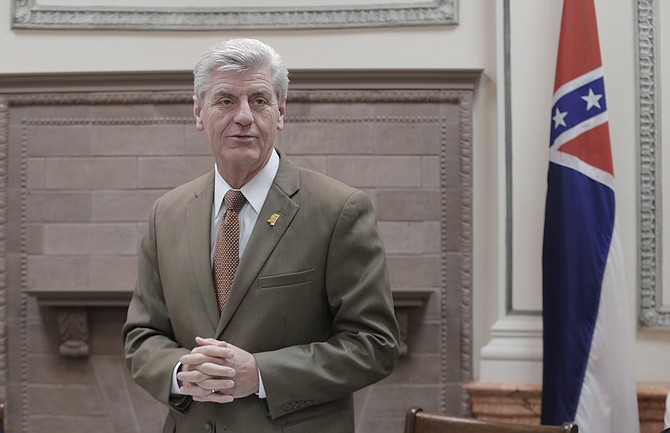Instead of pitting agency against advocacy organizations with budget cuts, Bryant needs to lead. He has the power in this state to bring together his board and advocates. Photo by Imani Khayyam.
Gov. Phil Bryant had a clarion call for politicians and state agencies last week at the Mental Health Summit, which Canopy Children's Solutions hosted. "We must stop politicizing the care of children," he told a room full of mental-health care and children's service providers. This is true. But to stop politicizing, the state needs leadership and action from its top political leader. In the same speech, Bryant went on to slam the Mississippi Department of Mental Health for not offering enough community-based services, seemingly blaming the bureaucracy of the agency for the state's mental health-care problems.
It's too late for blame games, however. Mississippi is just beginning to wade into litigation with the U.S. Department of Justice, which sued in 2017 over over-reliance on institutionalization to care for Mississippians with mental illnesses. Attorney General Jim Hood informed Gov. Bryant this month that the DOJ litigation will cost the state $1.7 million in fiscal-year 2018 alone. In the meantime, the state's Department of Mental Health is reeling from budget cuts that mean hundreds of lost jobs.
Does the mental-health department over-rely on institutionalization? Probably—hence the lawsuit. Can budget cuts fix that? Absolutely not. We need the governor to understand that repairing mental-health care in the state will take coordination and upfront investment to transfer the department's staff and resources to community-based solutions and away from state hospitals.
Bryant, instead, has asked for a "children's cabinet" to solve and coordinate the state's programs for children. This might be a plausible solution, but it didn't pass the Legislature this year—and the state does not have time to flounder on mental-health solutions. The governor is responsible for the state's Board of Mental Health. He appoints all nine members, so his railing against an agency run by a board he half-appointed (at least) is disingenuous.
If Bryant really wanted things to change, he could have been working for years now. He inherited the 2010 Troupe v. Barbour lawsuit, which targeted the lack of mental-health care services for youth and the state's over-reliance on institutions.
Mississippi's mental-health care problems are not secrets, and yet only when the DOJ sues the state and after speaking with some community advocates does the governor start talking about community-based services. Instead of pitting agency against advocacy organizations with budget cuts, Bryant needs to lead. He has the power in this state to bring together his board and advocates.
If the state is going to avoid spending millions litigating this case (like Georgia has), the time is now. Pointing fingers at this group or that agency is not how you solve the mental-health care problem in Mississippi. It's going to take more money, more qualified workers and a willingness from all invested parties to make a unified effort toward community-based services—potentially saving millions of dollars. So, stop pointing fingers, and get to work.
More stories by this author
- EDITORIAL: Gov. Reeves Needs to Take ‘Essential’ Seriously for COVID-19 Social Distancing
- EDITORIAL: City Needs to Name Officers Who Shot Citizens Without Delay
- EDITORIAL: Free Press Is Not Here to Comfort the Powerful; We're Here for Truth
- EDITORIAL: Dear Mississippi Politicians, Criminal Justice Reform Is More Than Rhetoric
- EDITORIAL: Transparency in Officer Shootings Needs to Improve, Not Worsen


